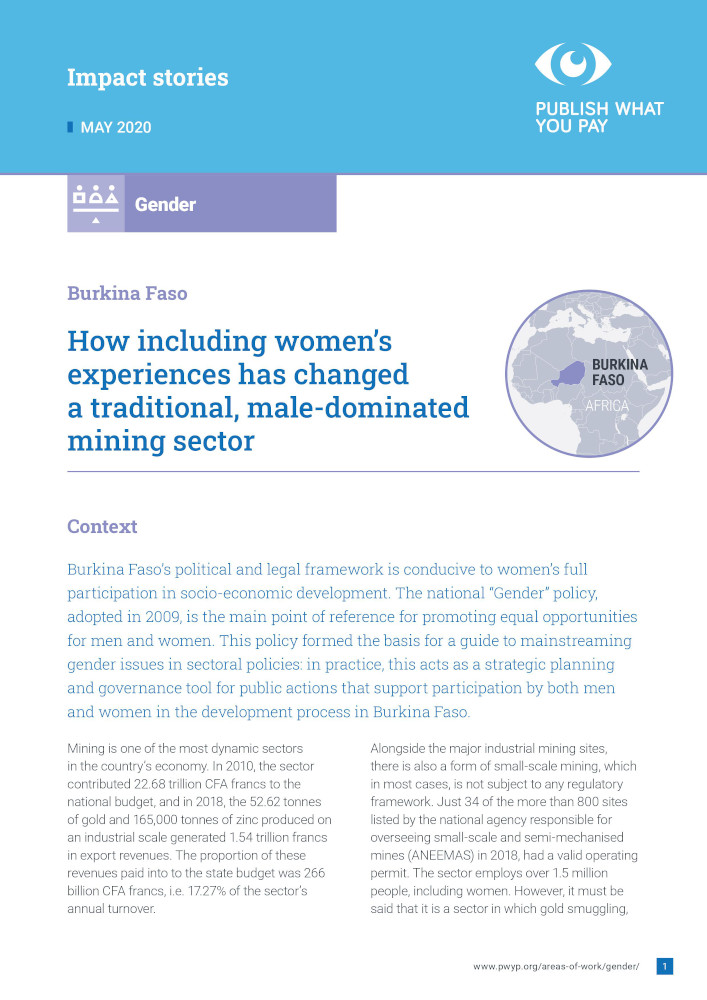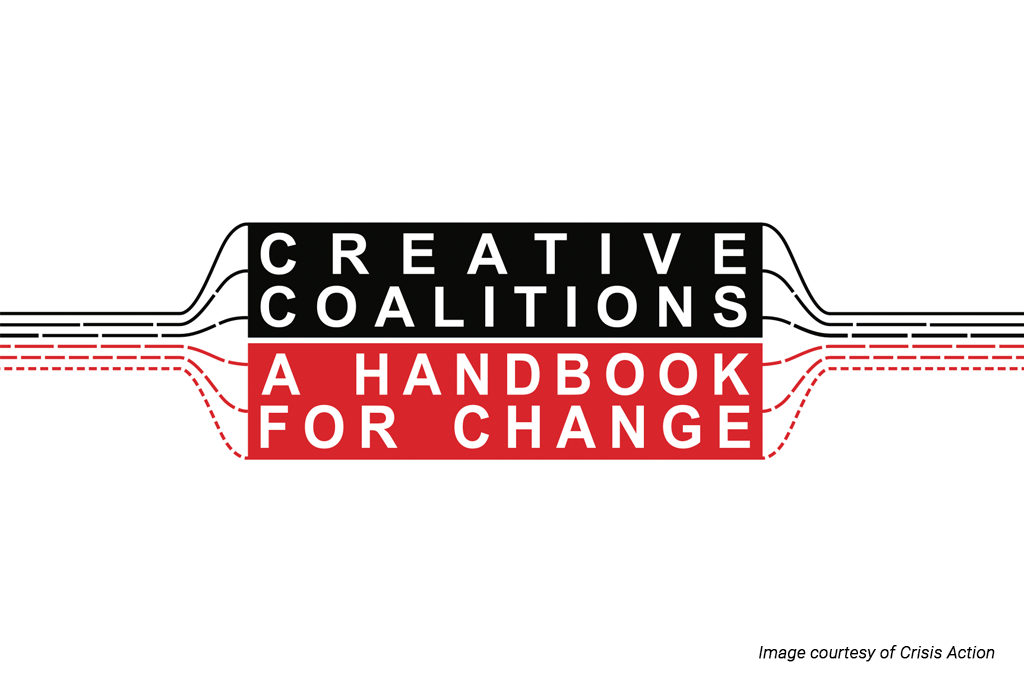Burkina Faso: How including women’s experiences has changed a traditional, male-dominated mining sector
Publications

Impact story
Burkina Faso’s political and legal framework is conducive to women’s full participation in socio-economic development. The national “Gender” policy, adopted in 2009, is the main point of reference for promoting equal opportunities for men and women. This policy formed the basis for a guide to mainstreaming gender issues in sectoral policies: in practice, this acts as a strategic planning and governance tool for public actions that support participation by both men and women in the development process in Burkina Faso.
This impact story explores how, through the PWYP Gender Project, PWYP member AFEMIB, aimed exclusively at women, has been running advocacy campaigns to encourage more inclusion of women in the traditionally male-dominated mining sector of the country.
This story is part of the PWYP Gender Project, which was made possible thanks to the support of the William and Flora Hewlett Foundation.










